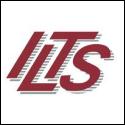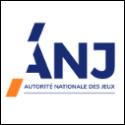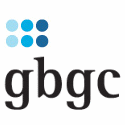Game Industry Promotion act was Amended to Expand Regulation of Random Items
SEOUL, South Korea (March 14, 2023) — On February 27, 2023, the National Assembly passed proposed partial amendments to the Game Industry Promotion Act, which, inter alia, introduces a new set of clarifications and obligations concerning probability-based Random Items (defined below) (the “Amended GIPA”). The Amended GIPA is expected to take effect as early as the first half of the next year after a grace period of one year.[1]
Below is a summary of the Amended GIPA.
I. Random Items Defined and Subject to Stricter Obligations
While probability-based, so-called “loot box” items have been regulated in Korea, there has been no guidance on what constitutes such probability-based items. The Amended GIPA addressed this point by adding the definition of Random Items (Article 2(11) of Amended GIPA), which reads:
| Article 2 (Definitions) 11. The term “Random Item” refers to the game items (defined as items that are used within the game to make progress) directly or indirectly purchased by a game player (including (a) paid game items and (b) game items that a game player can acquire by combining free game items with a paid game item), the specific types, effects and functions of which are determined based on random factors. |
With regard to disclosure obligation, the Amended GIPA significantly expands the scope of disclosure by requiring disclosure of “the types of and probability of redemption for” each Random Item, in addition to trade name, game rating, and description of the content of the game. The scope of the parties responsible for such disclosure was also extended to cover game providers (e.g. online-based game streaming services) in addition to game developers and distributors (e.g. sellers of offline game media such as CDs and game packs) (Article 33(2) of Amended GIPA)(see underlined parts below).
| Article 33 (Indication Obligation) ② A person who intends to produce, distribute or provide a game product for the purpose of circulating the game product or providing for the use thereof shall indicate the types of random items to be used in the game product, the information on the probability of redemption for each type and other matters prescribed by a presidential decree on the game product, its internet homepage and the advertising, or publicity materials therefor. |
Failure to make such disclosure or making false disclosure shall be subject to a corrective order (Article 38(9) of Amended GIPA) and in case the corrective order is not followed, criminal sanctions such as up to 2 years in prison or a criminal fine of up to KRW 20 million (Article 45(11) of Amended GIPA).
II. Other amendments
Other amendments contained in Amended GIPA are as follows:
a) The definition of a “juvenile” will be changed from any person under 18 years of age (including students attending high schools referred to in Article 2 of the Elementary and Secondary Education Act) to any person under 19 years of age pursuant to Article 2(1) of the Juvenile Protection Act (Article 2(10) of Amended GIPA). This expanded application of the juvenile concept will have an effect of preventing those between the ages of 18 and 19 from playing adult-rated games they can currently play lawfully for close to one year, which will add complexities in compliance with rating-related regulations. Further, due to the unusual definition of a “person under 19 years of age” under the Juvenile Protection Act, which excludes those becoming a 19-year-old during the relevant year from the definition of a juvenile from the first day of that year (e.g. if you become 19 years old in May 2023, you will be treated as an adult from January 1, 2023), the borrowing of this “juvenile” concept inevitably adds enforcement burdens relating to game rating regulations.
b) The term “addiction” will be deleted from the “preventative measures against excessive immersion in and addiction to games” (Article 12-3 of Amended GIPA).
c) The field of history will be added to the qualifications for a member of the game rating and administration committee (Article 16(4) of Amended GIPA).
d) Research and development for, and evaluation and utilization of, game security technology will be included in the government projects for the enhancement of technology development and levels with respect to the game industry (Article 6(4) of Amended GIPA).
e) An internet café business owner’s obligation to prevent users from using game products in violation of rating classifications is eased to require good-faith, due attention for such prevention (Articles 28(5-2), 35(2), and 36(1)(2) of Amended GIPA).
III. Implication
The Amended GIPA primarily aims to establish an official regulatory framework for Random Items, which have been under voluntary control. As it is contemplated that the scope of game products subject to the disclosure obligation with respect to “Random Items” and the indication methods, etc. will be specified in detail through amendment of presidential decrees and other sub-rules (Article 33(4) of Amended GIPA), we are of the view that it would be necessary to continuously monitor the process of subsequent amendments during the grace period.
Furthermore, while new regulations are introduced to govern Random Items, the Amended GIPA substantially maintains compliance burdens at a reasonable level by excluding radical measures initially proposed by various lawmakers, such as a blanket ban on “complete gotcha” type Random Items or establishing dedicated game user committees for each game business operator.
On the other hand, further alignment with other regulatory agencies may be necessary over the regulation of Random Items. For example, the Korea Fair Trade Commission has recently contested the legality of disclosure of information on the chance of obtaining loot-box items and the Ministry of Justice has announced the proposed partial amendments to the Civil Act in connection with the establishment of clauses on the warranty liability[2] with respect to transactions of digital content, such as manipulation of the chance of obtaining loot-box items (so-called “Digital Content Contract Act”). Amid such an extended move to regulate Random Items across different regulatory authorities, it would be necessary to be prepared to keep up with regulatory requirements with varying purposes.
Authors: Tae Uk Kang, Jinhee Rhew, Boram Kim and Park Joo-sung.
SOURCE: Bae, Kim & Lee LLC. / Lexology.
Tags: South Korea



























